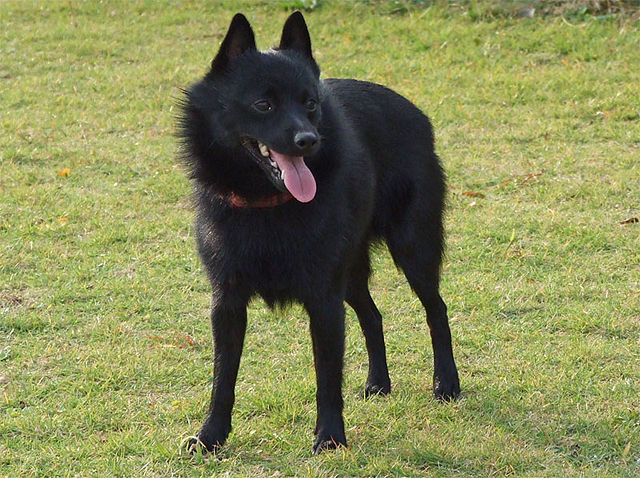Morkie vs Shorkie: Which Designer Dog Is Right for Your Family?
If you’re considering adding a small designer dog to your family, you’ve likely encountered both Morkies and Shorkies in your research.
These adorable hybrid breeds have gained popularity in recent years, particularly among apartment dwellers and those seeking affectionate companion dogs. But what exactly sets these two breeds apart, and which might be the better fit for your lifestyle? Let’s dive deep into the world of these charming designer dogs.
What Are Morkies and Shorkies?
A Morkie is a hybrid breed resulting from crossing a Yorkshire Terrier with a Maltese dog. Similarly, a Shorkie is created by breeding a Yorkshire Terrier with a Shih Tzu. Both breeds inherit characteristics from their parent breeds, though like all hybrid dogs, individual puppies can display varying traits from either parent.
According to veterinary geneticist Dr. Sarah Thompson of Cornell University, hybrid vigor (heterosis) in mixed breeds like Morkies and Shorkies can potentially lead to better health outcomes compared to purebred dogs. However, she notes that this advantage depends largely on responsible breeding practices and genetic screening of parent dogs.
Physical Characteristics and Appearance
Morkie Appearance
Morkies typically weigh between 4 to 8 pounds and stand 6 to 8 inches tall at the shoulder. Their coat is usually long and silky, combining the Maltese’s white fur with the Yorkshire Terrier’s distinctive tan and black coloring. Some Morkies may appear predominantly white, while others showcase more of the Yorkie’s coloring.

Shorkie Appearance
Shorkies tend to be slightly larger, weighing between 5 to 11 pounds and standing 6 to 9 inches tall. Their coat can be slightly thicker than a Morkie’s, thanks to the Shih Tzu’s double coat influence. Common colors include black, brown, and gold, often with white markings. The Shorkie’s face typically shows more of the Shih Tzu’s distinctive flat-faced (brachycephalic) features.

Temperament and Personality
Research conducted at the University of California Davis School of Veterinary Medicine suggests that mixed-breed dogs often display a blend of behavioral traits from both parent breeds, though individual personalities can vary significantly.
Morkie Personality Traits
Morkies are known for their energetic and affectionate nature. They inherit the Maltese’s devoted personality and the Yorkshire Terrier’s spirited character. These dogs typically form strong bonds with their families and can be somewhat protective despite their small size. Dr. James Carter, a canine behaviorist, notes that Morkies often display high social intelligence and adapt well to different living situations.
Shorkie Personality Traits
Shorkies tend to be slightly more laid-back than Morkies, inheriting some of the Shih Tzu’s more relaxed temperament. However, they maintain the Yorkshire Terrier’s alert and intelligent nature. These dogs are typically good with children and other pets, making them excellent family companions. They can be less vocal than Morkies, though individual dogs may vary.
Health Considerations
A 2023 study published in the Journal of Veterinary Medicine examined common health issues in designer dog breeds. The research highlighted several key considerations for both breeds:
Morkie Health
Morkies may be prone to:
- Dental issues (inherited from both parent breeds)
- Patellar luxation (kneecap dislocation)
- Progressive retinal atrophy
- Liver shunts (though less common than in purebred Yorkies)
The average lifespan of a Morkie ranges from 12 to 15 years, with proper care and regular veterinary check-ups.
Shorkie Health
Shorkies may experience:
- Respiratory issues (due to the Shih Tzu’s brachycephalic features)
- Hip dysplasia
- Eye problems
- Dental disease
Shorkies typically live between 11 to 14 years. The slightly shorter lifespan compared to Morkies may be attributed to the health challenges associated with brachycephalic breeds.
Grooming and Maintenance
Both breeds require significant grooming attention due to their long, silky coats. However, there are some notable differences:
Morkie Grooming Needs
Morkies have fine, silky hair that needs daily brushing to prevent matting. Their coat is somewhat easier to maintain than a Shorkie’s, as it’s typically less dense. Professional grooming is recommended every 6-8 weeks. Many owners opt for a “puppy cut” to make maintenance more manageable.
Shorkie Grooming Needs
Shorkies often have a thicker coat that can be more prone to matting. They require daily brushing and more frequent professional grooming appointments, typically every 4-6 weeks. Their facial wrinkles (if present) need regular cleaning to prevent skin infections.
Training and Exercise Requirements
Dr. Elena Rodriguez, a certified dog trainer specializing in small breeds, emphasizes that both Morkies and Shorkies benefit from early socialization and consistent training. However, their exercise needs differ slightly:
Morkie Exercise Needs
Morkies typically require more physical activity, needing about 30-45 minutes of exercise daily. This can be split into two or three shorter sessions. They excel at indoor play and short walks but also enjoy learning agility exercises.
Shorkie Exercise Needs
Shorkies generally need slightly less exercise, about 20-30 minutes daily. They may be less tolerant of intense physical activity, particularly in hot weather, due to their potential breathing limitations inherited from the Shih Tzu parent.
Cost and Availability
Designer breeds like Morkies and Shorkies often come with premium price tags. Current market research indicates:
- Morkie puppies typically cost between $1,500 to $3,000
- Shorkie puppies usually range from $1,000 to $2,500
These prices can vary significantly based on location, breeder reputation, and the puppies’ lineage. It’s crucial to work with reputable breeders who perform health testing on parent dogs.
Making Your Decision
When choosing between a Morkie and a Shorkie, consider your lifestyle and preferences:
Choose a Morkie if you:
- Want a more energetic dog
- Prefer a slightly smaller pet
- Don’t mind a potentially more vocal companion
- Can commit to regular exercise sessions
Choose a Shorkie if you:
- Prefer a slightly more laid-back temperament
- Don’t mind some facial wrinkle maintenance
- Want a dog that might be slightly better with children
- Live in a quieter household
The Bottom Line – Shorkie vs Morkie
Both Morkies and Shorkies make wonderful companion animals for the right families. While they share many characteristics, their subtle differences in temperament, size, and care requirements can make one breed more suitable than the other for your specific situation.
Remember that regardless of which breed you choose, proper veterinary care, training, and socialization are essential for raising a well-adjusted dog. Both breeds can thrive in apartments or houses, making them versatile pets for various living situations.
As with any designer breed, it’s crucial to research breeders thoroughly and ensure they follow ethical breeding practices. This includes health testing parent dogs and providing appropriate early socialization for puppies.





